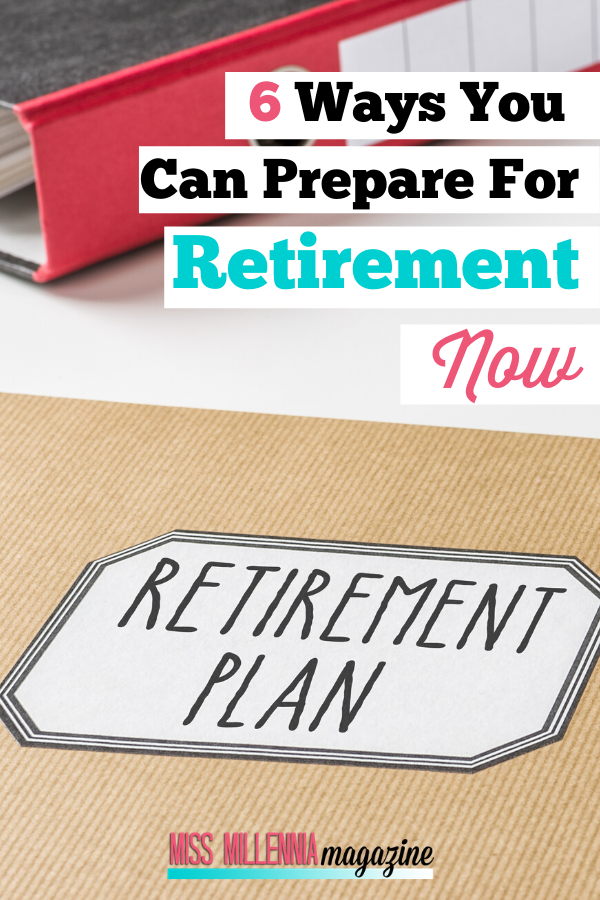6 Ways You Can Prepare For Retirement Now
Retirement is often something to look forward to since this is the time that you get to finally take a break from working. However, you can only fully enjoy your retirement if you prepare now.
Planning for retirement is not a one-step process, and it’s not just about saving money. That being said, here are some ways that can help you prepare for your retirement.
1. Think About Your Goals and Timeline
Before you take any actionable steps for your retirement, you need to set your goals and timeline. Both serve as the backbone of your entire retirement plan.
When it comes to your goals, you need to consider your needs, budget, and how much money you will need during your retirement. Plot out and run the numbers before anything else. When you start thinking of your expenses and running the numbers, you need to be realistic about your spending habits after retirement and put a margin on inflation.
Often, people make the mistake of underestimating their future expenses. Since you’ve been warned about this, it is better to be over-prepared than underprepared. For instance, Medicaid planning can help you run the numbers and provide a plan for retirement.
Retirement is time-bound, so you just need to look at the horizon between now and retirement age. This is your window to earn as much as you can for your retirement. The longer the time is between now and your retirement age, the higher the risk that your investment portfolio can handle. This means that you can take on investments with a higher risk and volatility, such as stocks, because you have the advantage of time.
To explain how age can be an advantage to get investments with a higher risk, here’s an example. If you are young, you can still put a bulk of your assets into investments with higher risk, such as the stock market. This is because the longer the time period your investment stays where it is, the higher the yield is, even though the stock market is very volatile.
2. Get Health Insurance
Assuming that you already have an emergency fund, it’s best that you don’t touch that fund as much as possible. To get health expenses out of the way, you can get health insurance to cover all your medical expenses when you retire.
Health insurance coverage will depend on the package that you get. Contact your local insurance company and check your options now. Take note that the younger you are, the lower insurance premium you have to pay.
3. Make An Investment Plan
You need to be able to have an investment plan in order to be financially independent when you reach retirement. It will be a waste if you just put the money you earn in your bank account. Instead, utilize investment tools to grow your money further.
Your investment plan can include investments in mutual funds, the stock market, corporate bonds, treasury bonds, and real estate, just to name a few. If you are unsure of the different kinds of investment tools, you can speak to an investment planner to help you out and manage your portfolio.
4. Improve Your Financial Health
Planning for retirement should be able to put things in a much better perspective, most specifically your financial health. This is because your current financial health will affect how much you are prepared for retirement. Hence, reassess how you manage your finances and use a holistic approach towards your financial health.
One of the ways to do this is to look for other sources of income or find ways to raise your current income. To do this, look for side hustles or get a part-time job to earn extra income. Starting a new business or renting out your property are also additional sources of income. To raise your current income, you can either look for a different job or ask for a raise from your current employer.
On the other hand, you could also use a defensive approach by reducing your spending. As a rule of thumb, it is best not to live beyond your means. This simply connotates that you should just spend what you need and not what you want. Essentially, you need to make a quick assessment of your expenses and find ways to bring it down.
To maintain good financial health, you also need to refrain from incurring debt. Debt does not only mean home mortgages, but it also includes credit card loans, car loans, and such. If you are in debt, that just means that you are spending beyond your means
5. Check Your Benefits
The government also helps prepare you for your retirement. An example of these is your social security benefits upon retirement. Check up on your benefits and how you can get this when you reach retirement age.
At the same time, there is also something called a pension, which is regular monthly income during retirement that is provided by either the government or your employer. Unfortunately, not all employers provide this benefit for their employees, so you need to check this out with your employer.
6. Set Up Income During Retirement
Since you are no longer employed, you will no longer receive regular income anymore every month. While you still have a job, you can already make the necessary preparations to set up a business or alternative income source for your retirement.
An example of this is purchasing real estate property or a condominium unit. Instead of living in it, you can rent it out or sell it when you reach retirement. This will become a passive income source when you are retired.
Your financial well-being upon retirement does not just happen overnight. Planning for your retirement starts now. Fund your future by taking care of your financial health now and planning ahead. Set your goals and achieve them by laying out an investment plan. Follow the tips above and fund your retirement the right way.












